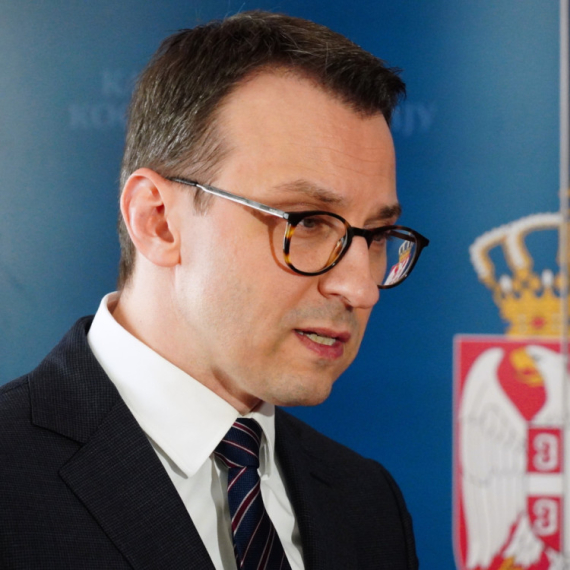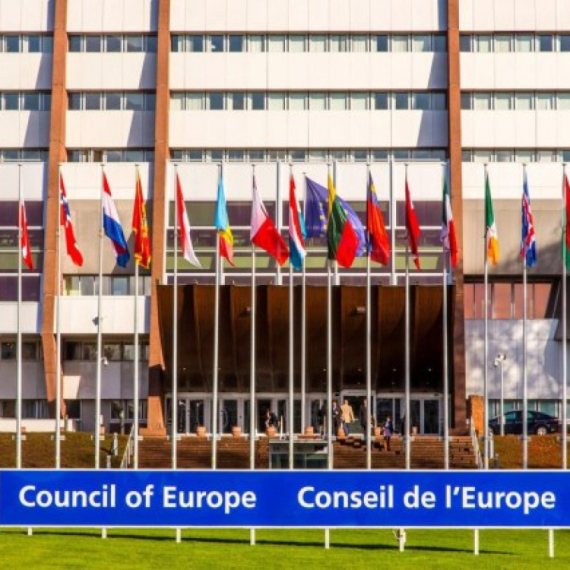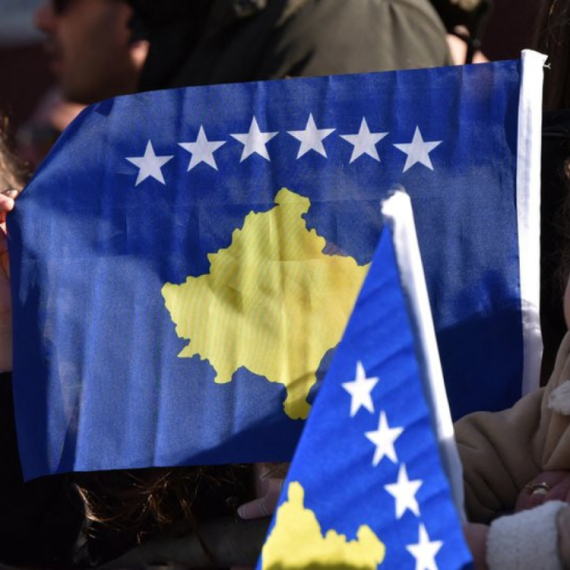“U.S. has no specific position on Tadić’s plan“
U.S. Assistant Deputy Secretary of State Philip Reeker says that the U.S. does not have a specific position on Serbian President Boris Tadić’s plan for Kosovo.
Sunday, 22.01.2012.
11:54

U.S. Assistant Deputy Secretary of State Philip Reeker says that the U.S. does not have a specific position on Serbian President Boris Tadic’s plan for Kosovo. The U.S. believes that it is now necessary to continue the Belgrade-Pristina dialogue. “U.S. has no specific position on Tadic’s plan“ Reeker said that the four points presented by the Serbian president were “issues that need to be discussed” but that there “are also issues in northern Kosovo and issues that Pristina wants to discuss”. “We haven’t discussed the proposals in detail and we do not have some specific U.S. stand on it. Our position is that Serbia’s focus at the moment should be on a direct goal and that is to secure the EU candidate status,” Reeker told daily Politika. When asked whether it was possible to persuade Pristina to negotiate all four points of Tadic’s plan, which includes a special status for Serbian monasteries and cultural heritage in Kosovo, protection of Serbs south of the Ibar River, a special status for northern Kosovo and protection of the state of Serbia and Serbs in Kosovo, the U.S. official said: “I really think that we should focus on the dialogue right now”. “The talks as a part of the Belgrade-Pristina dialogue are the current goal and a necessity. There are different views on both sides and important issues that should be discussed in the future. It is good that everybody have ideas and that they are free to present them openly, but I think that the focus should be on the dialogue right now,” he explained. Reeker noted that the goal was to implement the agreements that had been reached and to reach new ones, including the one regarding Kosovo’s participation in regional meetings, adding that the EU wanted to see efforts being made in order to reach agreements. He pointed out that Pristina had implemented all the agreements “without any exceptions”. The U.S. official pointed out that nobody was asking Serbia to give up on the UN Security Council Resolution 1244 and that both sides were asked to show “flexibility and creativity in order to make sure that both Serbia and Kosovo could take part and have their voice heard in regional forums”. When asked why the U.S. demanded abolition of the so-called parallel institutions in northern Kosovo since those institutions were the only elected institutions there, Reeker said that it was “necessary to take a look at the institutions we are talking about”. “There are institutions that have not been created according to Kosovo’s laws and there are other institutions that are functioning, such as schools and hospitals, that need to work in any situation. The focus should be on making progress inside Kosovo, so all people could satisfy their needs, and not have the institutions, which are fully supported by Belgrade, do that,” he underscored. When asked why partition of Kosovo was such a taboo for Washington and Brussels, Reeker replied that “it is not a matter of taboo but a matter of strong disagreement with the idea”. “The situation in Bosnia-Herzegovina is one of many reasons why we strongly oppose it and think that the partition of Kosovo or change of borders is a bad idea. When you once go down that road you will put every state under the question mark,” the U.S. official concluded. Philip Reeker Tanjug Politka
“U.S. has no specific position on Tadić’s plan“
Reeker said that the four points presented by the Serbian president were “issues that need to be discussed” but that there “are also issues in northern Kosovo and issues that Priština wants to discuss”.“We haven’t discussed the proposals in detail and we do not have some specific U.S. stand on it. Our position is that Serbia’s focus at the moment should be on a direct goal and that is to secure the EU candidate status,” Reeker told daily Politika.
When asked whether it was possible to persuade Priština to negotiate all four points of Tadić’s plan, which includes a special status for Serbian monasteries and cultural heritage in Kosovo, protection of Serbs south of the Ibar River, a special status for northern Kosovo and protection of the state of Serbia and Serbs in Kosovo, the U.S. official said: “I really think that we should focus on the dialogue right now”.
“The talks as a part of the Belgrade-Priština dialogue are the current goal and a necessity. There are different views on both sides and important issues that should be discussed in the future. It is good that everybody have ideas and that they are free to present them openly, but I think that the focus should be on the dialogue right now,” he explained.
Reeker noted that the goal was to implement the agreements that had been reached and to reach new ones, including the one regarding Kosovo’s participation in regional meetings, adding that the EU wanted to see efforts being made in order to reach agreements.
He pointed out that Priština had implemented all the agreements “without any exceptions”.
The U.S. official pointed out that nobody was asking Serbia to give up on the UN Security Council Resolution 1244 and that both sides were asked to show “flexibility and creativity in order to make sure that both Serbia and Kosovo could take part and have their voice heard in regional forums”.
When asked why the U.S. demanded abolition of the so-called parallel institutions in northern Kosovo since those institutions were the only elected institutions there, Reeker said that it was “necessary to take a look at the institutions we are talking about”.
“There are institutions that have not been created according to Kosovo’s laws and there are other institutions that are functioning, such as schools and hospitals, that need to work in any situation. The focus should be on making progress inside Kosovo, so all people could satisfy their needs, and not have the institutions, which are fully supported by Belgrade, do that,” he underscored.
When asked why partition of Kosovo was such a taboo for Washington and Brussels, Reeker replied that “it is not a matter of taboo but a matter of strong disagreement with the idea”.
“The situation in Bosnia-Herzegovina is one of many reasons why we strongly oppose it and think that the partition of Kosovo or change of borders is a bad idea. When you once go down that road you will put every state under the question mark,” the U.S. official concluded.

























































Komentari 29
Pogledaj komentare